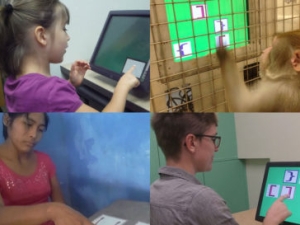

Research Bio
Steven Piantadosi is an assistant professor at the UC Berkeley, where he is head of the computation and language lab (colala). His research uses formal computational methods and behavioral experiments to study how people learn language and create conceptual systems. You can read about some of his work on information and language, ambiguity, and the evolution of human-like cognition.
Research Expertise and Interest
language acquisition, language processing
In the News
Native Amazonians, Americans and monkeys show similar thinking patterns
Kids store 1.5 megabytes of information to master their native language
Featured in the Media
What do indigenous people from the Amazon rainforest, American adults, pre-school children and macaque monkeys have in common? Not a huge amount, you'd imagine, but it turns out that the way humans and monkeys deal with ideas is very, very similar, based on tests using symbols similar to language. "For the first time, we have strong empirical evidence about patterns of thinking that come naturally to probably all humans and, to a lesser extent, non-human primates," said study co-author Steven Piantadosi, a UC Berkeley assistant professor of psychology. For more on this, see our press release at Berkeley News. Stories on this topic have appeared in several sources, including Firstpost, Science News, Cosmos, The Times Hub, Futurity, and Patch.
To fully acquire a language, children absorb roughly 12.5 million bits of information by the time they're 18, assistant psychology professor Steven Piantadosi and his former graduate student Frank Mollica at the University of Rochester have calculated. The study challenges theories that language acquisition occurs effortlessly, due to hardwiring, as well as notions that robots could easily master it. "A lot of research on language learning focuses on syntax, like word order," Professor Piantadosi says. "But our study shows that syntax represents just a tiny piece of language learning, and that the main difficulty has got to be in learning what so many words mean. ... When you think about a child having to remember millions of zeroes and ones -- in language -- that says they must have really pretty impressive learning mechanisms." For more on this, see our press release at Berkeley News. Other stories on this topic have appeared in more than a dozen sources, including New Scientist, Daily Mail (UK), Medicine News Line, Business Standard (India), Bioengineer.org, Tech Site, and Newswise.


